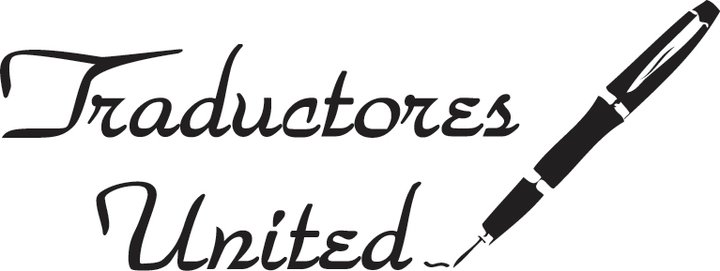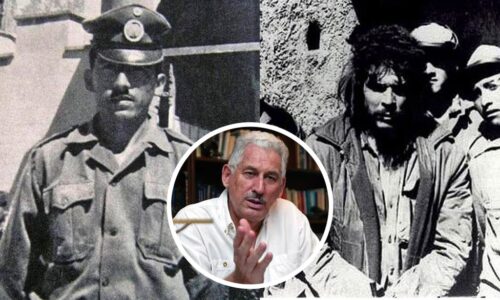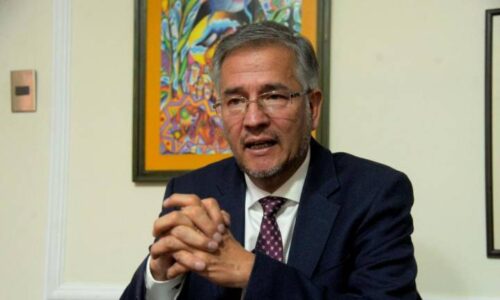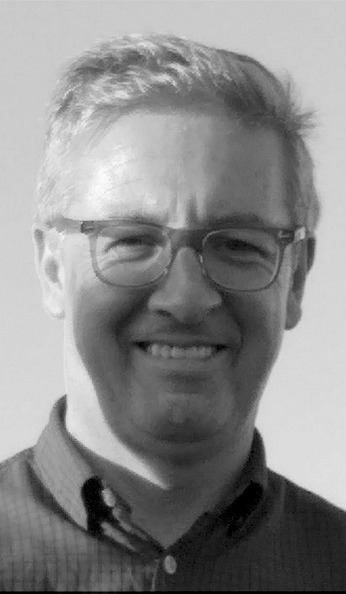
Tuto has not stopped losing, although he takes the consolation of having participated in the successful conspiracy that ousted Morales from the presidency in November 2019.

13 June 2021
JORGE TUTO QUIROGA, THE ‘YUPPIE’ THAT DAZZLED GENERAL BANZER
It is an interesting challenge to establish which of Jorge Quiroga Ramírez’s paternal references has most influenced his life as a winner, who graduated from a Texas university and returned to Bolivia to work in the financial system and then be recruited by the Foreign Minister of the Republic, Carlos Iturralde Ballivián, during the government of Jaime Paz Zamora.
Quiroga’s takeoff begins in foreign trade, undertaking a public career with that winning vocation that is instilled in the redoubts of individualistic competition, from La Salle school, through the practice of basketball in the Nonis de Santa Cruz de la Sierra and later climbing mountains, wiphala in hand, to prove to himself that if he had a vocation for marathons and the horizontal conquest of the world, he could also do it vertically, seeking to reach the highest peak.
Fernando Ramírez Velarde, Quiroga’s maternal grandfather, who died at the age of 35, is the author of Socavones de Angustia [Caverns of Angst] (1947), a mining novel that narrates the daily suffering and sacrifice of that workers’ vanguard in Bolivia and that, according to a critical review by Guillermo Lora (Revolutionary Working Party), bets on a depoliticized vision in which the conflict seen from the Marxist analysis of class contradictions does not appear on its pages. For Ramírez Velarde, according to Lora, the salvation of the miners is found in education, not in social struggle. In these terms, the working class was never an issue that may have taken away the sleep of this second Tuto, because the first, his father, is called Jorge Joaquín Quiroga Luizaga (1933).
Tuto the son learned from his father, and to verify this assertion, only elementary deductions are needed, insofar as he became the ambassador of the dictatorship of Colonel-General Hugo Banzer Suárez before the International Tin Council based in Malaysia, a country to which he moved with his entire family to exercise said commercial diplomatic representation, with his eldest son moving from childhood to adolescence.
If the maternal grandfather, the writer of a single and well-known novel, did not particularly influence the life of Tuto Jr., Tuto Sr. did, who in 1987 was part of the board of directors of the National Electricity Company (ENDE) together with personalities such as Carlos Morales. Landívar, alias Quinciño, General José Antonio Zelaya, Joaquín Aguirre Lavayén, Iván Guzmán de Rojas and Roger Levy. Two decades later, already in his capacity as Vice President of recycling Banzer to Democracy, Tuto Jr. organizes the Strategic Affairs Unit of the Presidency (Unasep), conformed with the same criteria by his own younger brother, Luis Fernando –later Vice Minister of the Coordination Sector (Ministry of Economic Development)–, José Luis Lupo, Salvador Romero, Raúl Peñaranda, Alberto Valdés, and Alberto Leytón.
The criteria for Tuto father and Tuto son appear to be identical: formin teams in which surnames and professional qualifications are tied. The Unasep conceived by Vice President Quiroga is constituted, in this logic, in the thinking team of the second Banzer government for the purposes of early warning, monitoring, conducting opinion studies, and other investigative methods, all aiming at improving levels of governance.
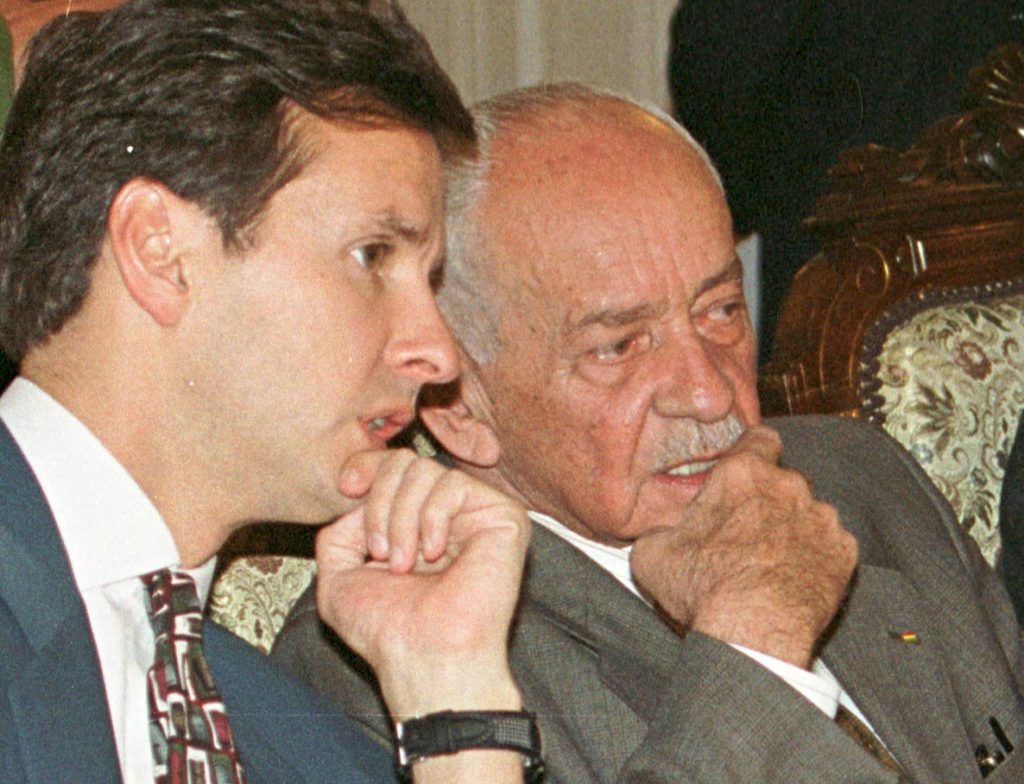
The link with Banzer
We already have that the novelist grandfather did not leave a deep mark on the grandson, but instead, the father stood as the link that allowed him, years later, to approach General Banzer, who was very excited to have found his dolphin, who would lead him in 1997 to the vice-presidential candidacy. For Banzer —that wolf in sheep’s clothing that from his dictatorship-era became obsessed with moving toward democracy and that discovered this systems engineer, the son of a friend whom he made ambassador during the dictatorial seven years—, Tuto is the complement of the new generation, who had already shown his accounting and organizational skills as Undersecretary of Public Investment and International Cooperation and as Minister of Finance of the government of the so-called Patriotic Agreement chaired by Jaime Paz Zamora, which has the General as its main partner.
Tuto was fast. He was a minister at 32 years old. Paz Zamora was delighted with the efficiency of this yuppie who, according to some urban legend, was capable of mentally adding eight-digit figures. A prodigy that in 1993 had been appointed campaign manager of the Banzer-Zamora Medinacelli binomial, in 1995 Tuto assumed the national sub-presidency of the party –the Nationalist Democratic Action (ADN)– and in 1997 he formed an electoral tandem with the General to come to power with a 22, 26% of the votes, with the return of favors from Jaime Paz Zamora and his party, the Revolutionary Left Movement (MIR), to become president. By then, the Banzer executioners of the dictatorship and its victims, the MIR member, had already crossed closely together and several times the so-called “rivers of blood”, from a coalition that was expanded with the participation of other political parties such as Condepa (Carlos Palenque), UCS (Jhonny Fernández), NFR (Manfred Reyes Villa) and FRI (Óscar Zamora Medinacelli).
With the fortitude of Forrest Gump, but with the ego of the handsome boy at a party, Tuto became president (2001-2002) because his political mentor and father resigned to die of lung cancer. With the General buried, the story began to take another flight after being part of a government, three years as vice president and one as the first president. From then on, over time, he will stop citing Banzer and will sabotage the binomial of his own party –Ronald MacLean-Tito Hoz de Vila (+)– for the 2002 elections, when the ADNhad entered the line end of its existence, on the way to disappearance. The ADN binomial obtained 3.4% of the votes.
[…]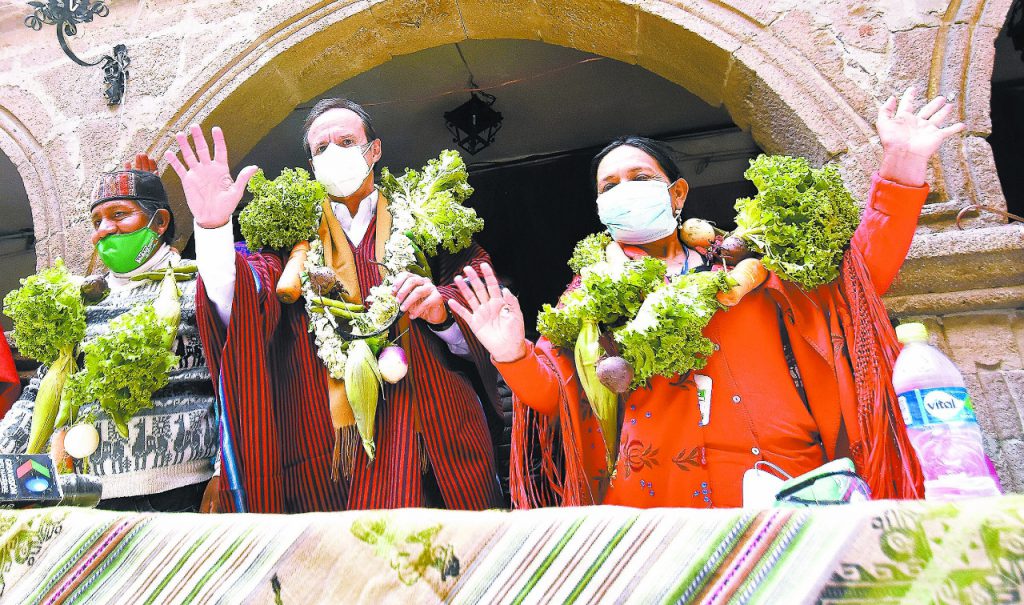
Against Latin American progressivism
In his systematic purpose of detracting from the authenticity of the achievements of the governments of Evo Morales, Quiroga declared in 2014: “Enough with the lies that the bonanza is due to nationalization. It is absolutely false. Today the country exports 10 times more than a decade ago. Nationalization has nothing to do with it. There is an economic bonanza due to high prices. Neighbors buy more raw material from us (…) In addition, there is money due to the gas bonanza that occurred due to various factors … There is a bonanza due to the sale contract to Brazil entered into by Herbert Müller (his Minister of Hydrocarbons), which stipulates the costs and volumes with which it is sold today; to the gas pipelines that were laid during my government; due to the Hydrocarbon law proposed by Hormando Vaca Díez (president of the Senate) and there is a boom in the sale of raw materials.”
For Tuto no actual nationalization took place and therefore there was no transformative action in the Bolivian State-foreign investors’ relationship, a topic on which he has been replied the following: The executive president of YPFB, Carlos Villegas, accused Jorge Quiroga, candidate of the Christian Democratic Party (PDC, for its Spanish acronyms) of trying to give away all the “rich gas” that today benefits Bolivians through the nationalization of hydrocarbons.
“You, Mr. Jorge Quiroga, are the main promoter of giving away our gas with all its components to Brazil,” he emphasized when recalling that throughout the privatization period that Bolivia experienced at the end of the 1990s and the middle of the decade In 2000, neither his government nor other allied parties took steps to recover the liquid fractions contained in the rich gas exported at dry gas prices.
Based on the steps taken personally by President Evo Morales, as of 2006, we have made recoveries; Petrobras has just paid YPFB $ 434 million for the debt of the components of the “rich gas”; and the Río Grande Liquid Separation Plants, which are in full operation in Santa Cruz, and the new Gran Chaco, soon to be inaugurated in Tarija, allow the separation of Liquefied Petroleum Gas (LPG) and gasoline that stay in and self-supply Bolivia and also facilitate the export of surpluses to several countries in the region.
On the other hand, Carlos Villegas said that in the dark pages of our history have recorded the way in which Jorge Quiroga Ramírez finished off or privatized the Gualberto Villarroel de Cochabamba and Guillermo Elder Bell de Santa Cruz refineries, in addition to the transfer of private wholesalers of the powers of fuel marketing in Bolivia.
“I am sure that if we did not recover our refineries, an energy crisis of magnitude was imminent in Bolivia today,” Villegas stressed. (Press release of August 31, 2009, YPFB).
In the presidential elections of 2014 –he did not participate in the 2009-elections–, when Tuto was already perched on social networks to embark on a new career, this time with always adjectival disqualifications against Evo Morales, the MAS, and a large part of Latin American progressivism, Tuto stood once again as a candidate for the presidency without Podemos but with the acronym borrowed from the old Christian Democratic Party (PDC) and forming a binomial with Tomasa Yarhui, who was his Minister of Indigenous Affairs in 2002. On this occasion, Morales won elections with 61% and Tuto finished third with only 9.02% of the votes.
True to his style of stepped-participation in elections, Tuto did not appear on the 2014 ballot and was re-enabled for 2020. Then things looked much worse for him: the polls did not give him more than 1% of citizen preferences, much less under Luis Arce (MAS) and even Carlos Mesa (CC), a harsh reality that led him to get off the candidacy, after having been a fundamental strategist in the constitutional interruption perpetrated between November 10 and 12, 2019 with the indispensable advice from his lawyer and friend, Luis Vásquez Villamor, the one who was president of the Chamber of Deputies and specified the expulsion of Evo Morales in 2002. Tuto walked through the Murillo square on Saturday, November 9 and was the one who directed key operations such as the exit of Evo Morales, after his defenestration, with the Military High Command headed by General Williams Kaliman.
Tuto is the prodigal son of Bolivia, a country in which, by class or caste, those above must command. Those below have historically obeyed until they learned to win elections in 2005. For historical memory, it is always necessary to emphasize that when citizens resisted the instructions based on the manual for good citizens, they ended up massacred, dead without names, without German or Jew surnames surviving, and undeserving of portraits for their services to the nation by the Establishment newspapers.
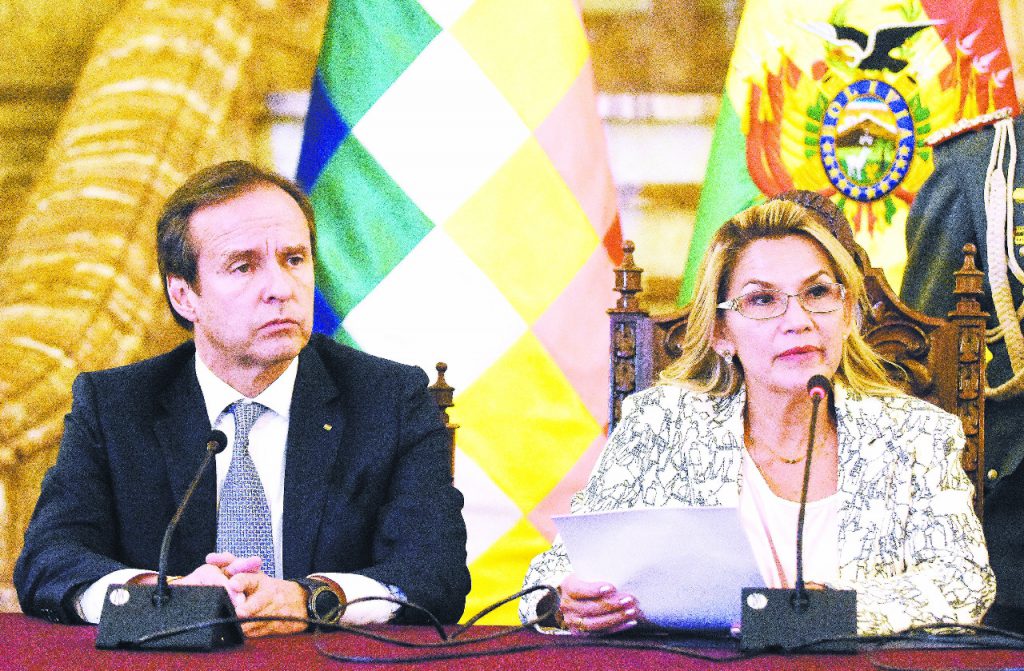
Tuto enters his old age with his friend Raúl Garafulic Lehm, owner of Página Siete, asking that we should not vote for him because Mesa represents the useful vote to beat the MAS. Garafulic says that Tuto is the best, but that he will not win, and in the logic and vital itinerary of Banzer’s heir, what counts is winning and since 2005 he has been dedicated to losing, and losing against the MAS is strictly prohibited. This close friend of the United States Embassy has not stopped losing, although he has the consolation of having participated in the successful conspiracy that ousted Evo Morales from the presidency on 10 November 2019.
La Razón publishes a series of articles related to power and the media in Bolivia. The journalist Julio Peñaloza Bretel investigates trajectories of the political sphere with specific weight, as well as the complex and conflictive relationships between public figures and the dominant urban media structure in the country. The basis of this proposal is inspired by the need to remember to combat forgetfulness and ignorance.
Source: https://www.la-razon.com/nacional/2021/06/13/tuto-quiroga-el-yuppie-que-encandilo-al-gral-banzer/
